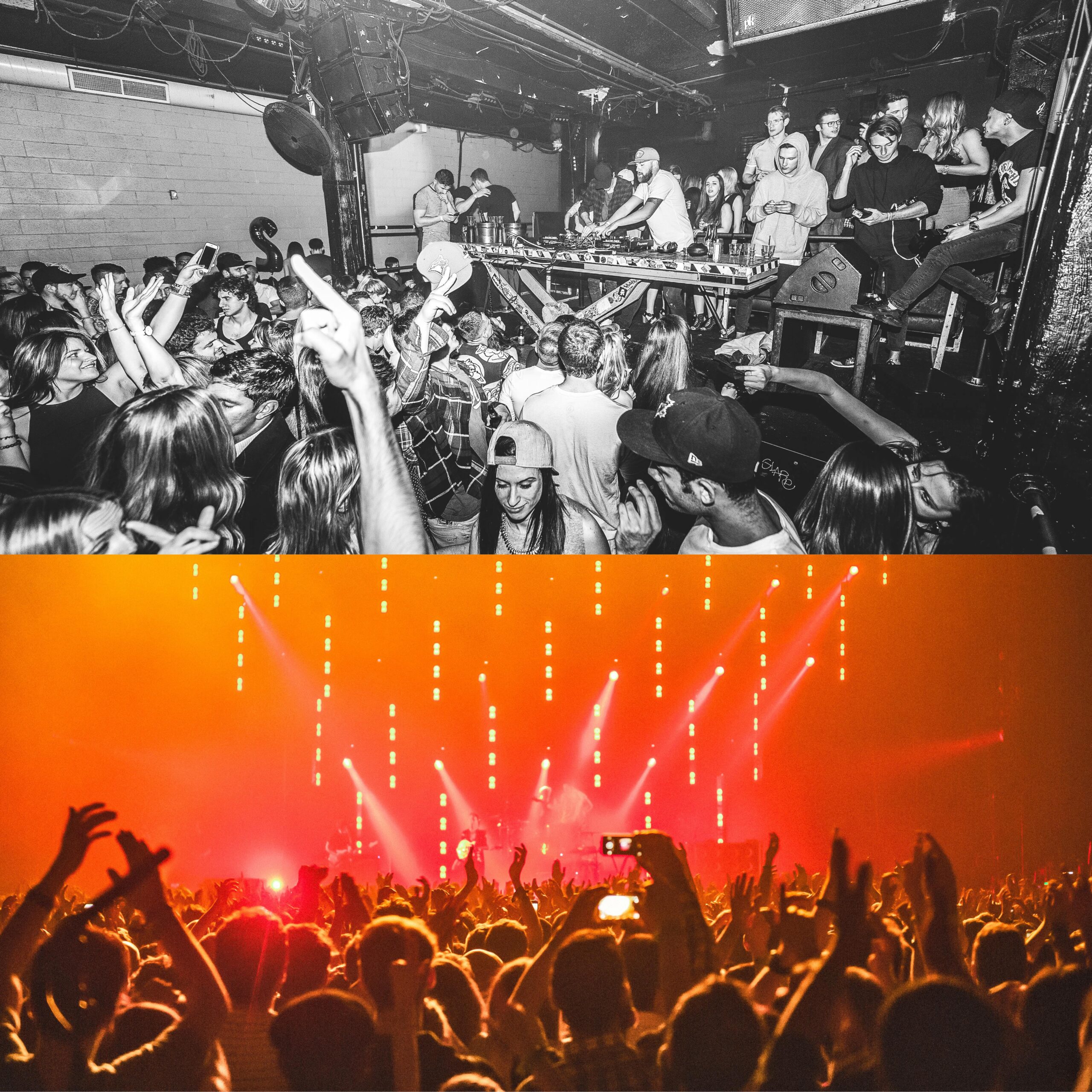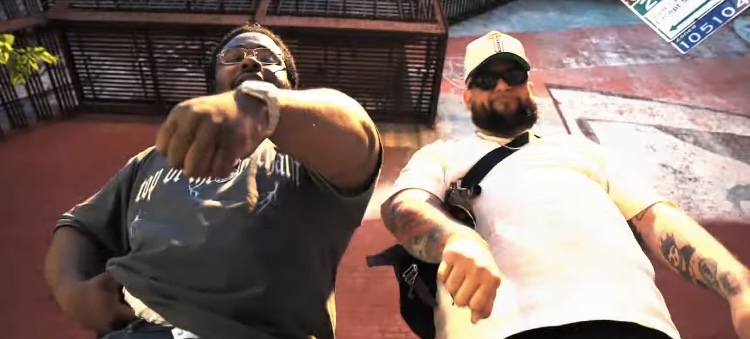We Speak Music
The Battle for the Beat: Creativity vs. Commerce in the Dance Music Industry

In the ever-evolving landscape of the global music industry, the dance music scene stands as a testament to creativity, passion, and the unyielding love for rhythm. However, recent trends have highlighted a growing concern among music fans around the world: the encroaching influence of money over artistry.
The recent high profile saga between a former club owner and a powerful corporate entity encapsulates this struggle, offering a poignant reflection on the state of the industry today.
- For decades, iconic clubs around the world have served as beacons for electronic music lovers. These venues, whether nestled in the bustling streets of major cities or hidden in idyllic beach locales, were more than just places to dance; they were cultural landmarks. Under the stewardship of visionary owners, these clubs garnered reputations for hosting some of the most iconic DJ sets in history. Their dedication to music and the unique atmospheres they created offered unparalleled experiences, making them must-visit destinations for clubbers from all corners of the globe.
However, the landscape has shifted dramatically as legal battles and corporate interests encroach upon these sanctuaries of sound. In numerous high-profile cases, powerful conglomerates have laid claim to the brands that these clubs cultivated with relentless passion and innovation. Court rulings have effectively stripped original owners of the rights to the brands they nurtured, handing control to entities more focused on profit than on preserving the cultural essence of these venues.
The dance music community has not remained silent in the face of these changes. Social media platforms are ablaze with reactions, many expressing outrage over what they perceive as the commercialization and exploitation of beloved cultural institutions. Comments lament the loss of authenticity, with some users accusing corporations of “prostituting” the brands with overpriced drinks and superficial livestreams. This sentiment resonates deeply with those who value the history of these clubs and the genuine connections they fostered among music lovers.
Yet, amidst the turmoil, new hopes are emerging in the form of grassroots movements and new brands. These entities position themselves as counter-movements to the corporate takeover, championing the core values that made the original clubs iconic. In their eyes, there is no space for diminishing the musical heritage of the past, and their message is striking a chord with a greater community who believe in the sanctity of music and the preservation of its roots.
These new brands aim to create inclusive environments where creativity flourishes and the essence of dance music is honoured. Their missions are clear: to provide spaces where music reigns supreme, free from the constraints of corporate interests. These movements not only offer glimmers of hope but also rallying points for DJs, musicians, and fans who seek to reclaim the spirit of the dance music scene.
Statistics reveal a growing trend of disillusionment among music fans. A recent survey by DIAL News indicated that 62% of dance music enthusiasts feel that the industry is becoming too commercialised, and 58%expressed a desire for more authentic experiences that prioritise music over profit. These figures underscore the importance of movements that address the concerns of a passionate and dedicated community.
The transformation of iconic clubs from revered institutions to contentious legal battlegrounds serves as a stark reminder of the challenges facing the music industry. It highlights the delicate balance between preserving cultural heritage and navigating the realities of commercial success. As new brands continue to gain traction, they symbolise a potential shift towards a more balanced and respectful approach to music culture.
In the broader context, this struggle is not confined to any single club or location. It is a global phenomenon affecting the music industry at large. From Berlin to New York, Ibiza to Tokyo, the tension between creativity and commerce plays out in similar ways. Iconic venues that once thrived on their unique identities and loyal followings now face pressures from corporate entities seeking to capitalise on their success. The result is a homogenization of experiences, where the distinct flavours of local music scenes risk being overshadowed by the demands of profitability and brand consistency.

Five Notable Examples of Commercialised Dance Venues
- Fabric, London: Fabric has long been a staple in the London nightlife scene, known for its cutting-edge music and vibrant community. However, financial difficulties and legal battles nearly shut it down in 2016. After a temporary closure, the club reopened with new licensing conditions, highlighting the tension between maintaining a cultural institution and navigating commercial and regulatory pressures. (The Independent) (Time Out Worldwide)
- Output, New York: Output was celebrated for its no-frills approach to nightlife, focusing purely on music and the experience. Despite its popularity, the club closed its doors in 2018. The rising real estate costs and changing landscape of Brooklyn nightlife contributed to its closure, reflecting broader trends in urban areas where cultural venues struggle to survive against commercial development. (Mixmag) (Forbes)
- Space, Ibiza: One of the most iconic clubs in the world, Space Ibiza, faced significant changes when its lease ended in 2016. The brand was acquired by a powerful hotel group, leading to a rebranding and transformation of the club into a new venue, Hï Ibiza. This shift sparked controversy among long-time fans who felt the essence of Space was lost in the commercialization process (Your EDM) (Houston Press).
- Tresor, Berlin: Tresor is a key player in Berlin’s techno scene, renowned for its industrial setting and underground vibe. While it remains a beloved venue, it has faced pressures from Berlin’s rapid gentrification and the influx of commercial interests in the city’s vibrant nightlife, forcing it to balance its underground roots with survival in a changing urban environment (TrinColl Commons).
- The Haçienda, Manchester: The Haçienda was a legendary nightclub that played a crucial role in the Manchester music scene and the rise of acid house and rave culture. However, financial troubles and increasing violence led to its closure in 1997. The club was later converted into luxury apartments, symbolising the commercialization and loss of a cultural icon that had once been a hub of creativity and musical innovation (Music Gear Hub).

But the resilience of the dance music community offers hope. Independent promoters, underground parties, and innovative festivals are finding new ways to connect with audiences, emphasising authenticity and the raw, unfiltered joy of music. These efforts remind us that while money and power may influence the industry, the true heartbeat of dance music lies in its ability to bring people together, transcending borders and breaking down barriers.
The future of dance music may be uncertain, but one thing remains clear: as long as there are passionate individuals committed to preserving its soul, there will always be a space for genuine creativity and expression. The global music industry must heed the call of these voices, balancing commercial interests with the need to nurture and protect the cultural heritage that makes dance music a vital and vibrant part of our world.

In conclusion, the ongoing battle between creativity and commerce in the dance music industry is more than just a series of legal disputes; it is a reflection of broader trends and sentiments within the community. While money and power may have won significant battles, the spirit of creativity and the love for music continue to inspire new movements and initiatives. These new brands and grassroots efforts represent beacons of hope, reminding us that the heart of dance music still beats strong, driven by those who refuse to let commercial interests overshadow the true essence of the art form.
Rinco Soesman
We Speak Music
B.A. Badd drops video for “Heart On My Sleeve” ft. Bub Styles

Following the audio release of new single “Heart On My Sleeve” emcee/production duo B.A. Badd and Sypooda have dropped the official video. Co-produced by Reallyhiiim the track and video feature Bub Styles and was filmed by Gee (Chinatown Sound).
Watch official video for “Heart On My Sleeve”:
“Heart On My Sleeve” appears on the B.A.Badd & Sypooda’s collaborative LP Painted In Hunger (currently only available via Bandcamp).
Another track from the album “100” was released in video format recently as well.
Watch official video for “100” here: https://youtu.be/OHALfIpRwMw
Initially connecting online, Virginia beatsmith Sypooda (Ab-Soul, Daylyt, Grafh) reached out after hearing B.A. Badd’s track with Conway The Machine “Everybody Eats.” The conversation progressed to Sypooda flying out to Buffalo, NY to record with BA Badd. In addition to Bub Styles the resulting album also features appearances by Cozz and Prxfet.
In addition to Painted In Hunger, B.A. Badd has been keeping busy on the live circuit appearing on Jae Skeese’s Ground Level 2025 national tour.
More Info:
-

 We Speak Volleyball1 week ago
We Speak Volleyball1 week agoBuilt for the Pressure, Wired to Compete: Loretta Duby’s Passionate Pursuit of Purpose Through Volleyball
-

 We Speak Soccer4 days ago
We Speak Soccer4 days agoNo Entry Allowed: How Austin Fortner Is Becoming a Standout Keeper with Confidence and Control
-

 We Speak Football5 days ago
We Speak Football5 days agoFrom Snap to Touchdown: How Niah Reyes Plays the Game with Heart and Hustle
-

 We Speak Coaches7 days ago
We Speak Coaches7 days agoCoach of Culture, Heart of a Movement: The Extraordinary Journey of Daniel Moore, Pioneer of Women’s Flag Football and Builder of Young Lives

















